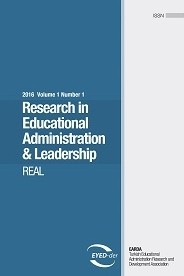Institutional Mentorship in West Africa: Comparing Government-Regulated and University-Led Models
Institutional Mentorship in West Africa: Comparing Government-Regulated and University-Led Models
This paper compares two institutional mentorships in the West African context: one is an institutional affiliation required by the National Accreditation Board (NAB) between a mentor public university and mentee private university in Ghana; the second one is a university-led mentorship between a mentor private university in Ghana and a mentee private university in Niger. The research questions are the following: How do the two models of institutional mentorship contrast? What is the role of the mentor and mentee in ensuring the effectiveness of institutional mentorship? To investigate these questions, qualitative data was collected through document analysis and interviews of key informants, who were involved in the mentoring relationship across the three institutions. Goleman’s (2000) leadership styles theory was applied as the theoretical framework in analyzing the case studies. The NAB institutional affiliation was coercive and created a disempowering and constraining effect upon the mentee, whereas the university-led mentorship displayed an authoritative leadership style and empowered the mentee through the inspirational example of the mentor. The understanding of responsibilities of the mentor and mentee in ensuring effective mentoring was regulations-driven under the NAB affiliation model and values-driven under the university-led model. The study showed the importance of the sense of agency of both the mentor and mentee in contributing to the mentoring relationship and what both forms of institutional mentorship could learn from each other. The findings of this study are important and relevant in informing the NAB to improve its institutional affiliation program and for new universities that are seeking models for building mentoring relationships with other institutions to expand their potential and impact.
___
- Ansah, F., & Swanzy, P. (2019). Affiliation policy rhetoric and reality in the Ghanaian higher education context. Journal of Higher Education Policy and Management, 41(2), 204–218.
